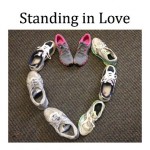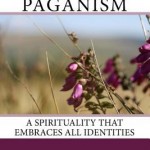What is fundamentalism? Is it all bad? Can the term ‘fundamentalist’ be applied to Pagans?
What is fundamentalism?
The term fundamentalism originated in Christianity, when a series of books called The fundamentals was published, outlining five beliefs that the author considered it essential for Christians to hold. In that context, the term originally meant someone who adhered to these five beliefs. The movement was created in response to liberal theology and higher criticism; so in that sense it is essentially conservative.
Since then, the term has been applied to other religions (notably Islam), where it is characterised by a tendency towards literal belief in a particular interpretation of the scriptures or tenets of that religion.
There have been movements to take scriptures literally in the past, though whether we can back-project the term “fundamentalist” onto them is open to debate.
A commenter on this blog has argued that fundamentalists are not all bad, but are passionate in their beliefs. I am not sure that this is true — I think that fundamentalism is characterised by fear and insecurity.
Mystical and experiential religion is characterised by direct experience of the Divine or deities. The mystic recognises mystics from other traditions, and assumes that they have a similar experience with a different mythology (or with a different being or beings). Someone who experiences their religion in their heart usually has no need for rigid dogma and doctrine (unless the need to conform to a doctrine is imposed on them from outside).
Conversely, a person who does not have an inner experience of the Divine or deities may resort to fundamentalism to give them a structure or a sense of certainty. (I am not saying this is always the case, just that it is a frequent occurrence.)
Is fundamentalism all bad?
Well, not all fundamentalists are necessarily bad people, but if we define fundamentalism as a fearful response to critical engagement with doctrine and dogma, then the fundamentalist tendency can’t really be seen as a good thing.
If your faith is strong enough (because it’s rooted in an inner experience of your deities or deity), it ought to be able to withstand criticism, either from atheists, or from other traditions. It is possible to be a passionate adherent of your tradition, and still open to other views and to criticism.
Can Pagans be characterised as fundamentalist?
Where there is a tendency to be rigid and dogmatic about tradition or belief (e.g. “we’ve always done it this way, so it’s correct, even if it hurts you”, or “we believe this, so we act in a certain way, even if the belief is contrary to evidence and the action hurts people”), then yes, it is possible to be a Pagan fundamentalist.
Recently, Pagan Studies academic Sabina Magliocco wrote a guest post at The Wild Hunt, in which she discussed fundamentalist tendencies in Pagan traditions.
She defines fundamentalism as:
a form of ideology, religious or secular, characterized by a black-and-white, either-or, us-vs.-them morality that precludes questioning. It generally involves insistence on belief in the literal truth of some canon, as well as a concern with identity politics and boundary-setting. Fundamentalisms are inflexible and have difficulty adapting; they have a strong need for certainty and a clear sense of belonging, and anyone who disagrees is labeled an enemy or heretic.
She goes on to discuss whether this is applicable to contemporary Pagans, and finds that a certain rigidity has emerged around two particular topics: the historicity of Wiccan foundational narratives; and the reality of deities. She cautions against defining our community belonging by belief, because belief is provisional and changing. I recommend reading the whole article, and the paper when it becomes available.
I have also noticed a tendency towards rigidity when discussing gender roles in ritual. When I have questioned why a thing is done a particular way, and suggested changing it, people have responded with “but that’s the tradition”. Well, traditions evolve and change in an organic way; they are not fixed. They change in response to circumstance, and people’s needs.
A further indication of fundamentalist tendencies is the way in which some people have spread rumours about academics studying Pagan traditions that they are out to discredit Paganism and undermine it. This seems to me to be a fearful and insecure response, which is a characteristic of fundamentalism. In fact, as Sabina Magliocco points out, many Pagan academics have risked opprobrium from other academics by even writing about Pagan traditions and taking them seriously. They are also bound by a code of ethics; and in most cases, the academics who study Pagan traditions are also practitioners (either of a Pagan tradition, or of another tradition).
Whether or not we apply the label “fundamentalism” to these tendencies towards rigidity and dogma, we do need to guard against developing an us-versus-them mentality, and labelling people who disagree with us as enemies. We need to be flexible, open-minded, and inclusive.
















